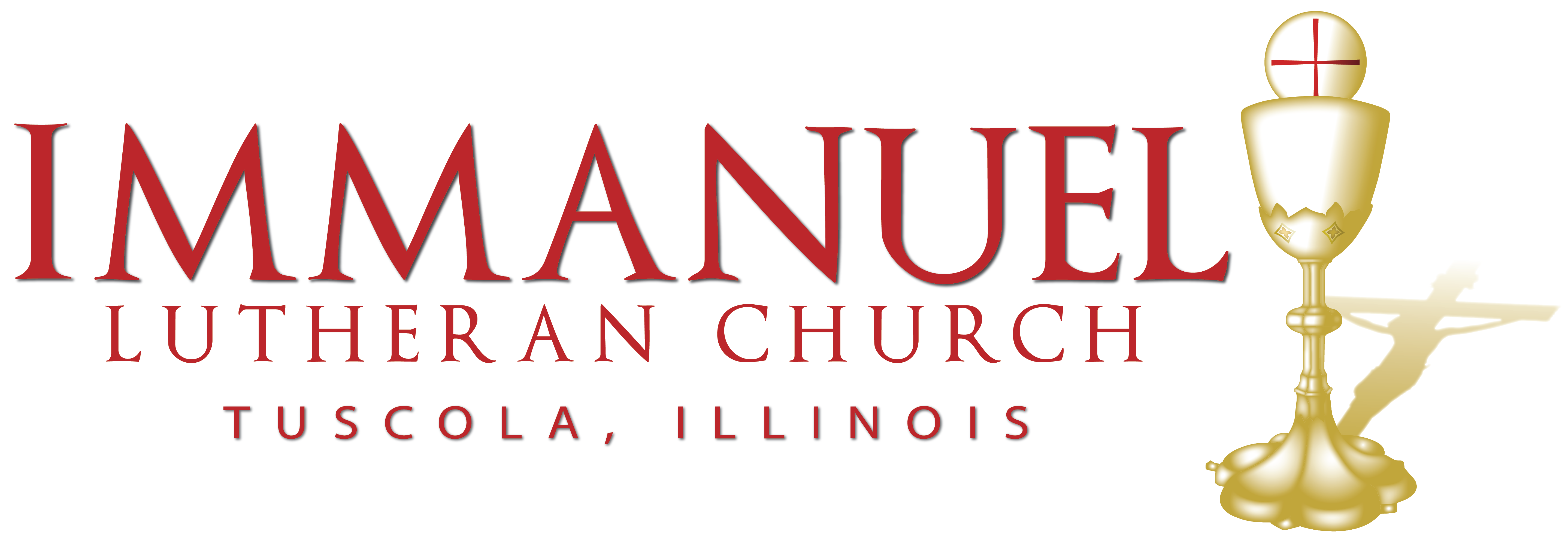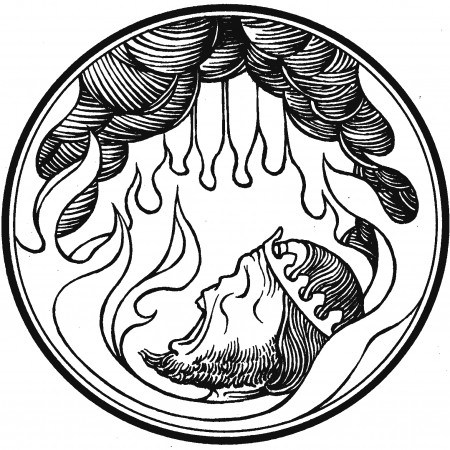The First Sunday after Trinity
Luke 16:19–31
+ IN NOMINE IESU +
We shouldn’t be surprised that there has never been a completely pure church, that there have been many who have been baptized and bore the Christian name, but who denied this name and their Baptism by their works.
Christ Himself tells us this will be the case when He likened the Christian Church to a field in which weeds flourish among the wheat until the end of days, or when He likened it to a wedding hall in which not all wear the wedding garment, or to a net that catches not only good fish but also the bad.
Corruption amid the Christian Church has at all times been great. There is no golden age of the church. But it seems that it has never been as great as it is today. I say this because even in times past God’s Word was esteemed as God’s Word. It meant something when one said, “Thus, saith the Lord.” But today it seems that Psalm 11 has come true, “If the foundations are destroyed, what can the righteous do?”
Is this not the case? Is not all of Christianity full of mockers of God’s Word, who no longer believe in any promise or threat of God? Are not today the foundations being destroyed? Are there not thousands, yes, millions, who were baptized in the triune God and longer regard God’s Word as God’s Word but rather a book of legends and myths? Are there not even many Christians so poisoned by the false enlightenment of our times that they no longer believe in what is clearly written in the Holy Scriptures? Do they not tear sometimes this, sometimes that out of the Bible and instead follow their hearts, their feelings, and the accepted and acceptable principles of the modern world—principles about marriage and divorce, about human sexuality and contraception, about life and death, about salvation, and how that salvation is given to us?Now even believers have become unbelievers because they do not see God’s Word and God’s Word.
What shall we do? Where do we find light in darkness? Where is there certainty in the tottering of all things round about us? One of those now damned in hell once appealed to a man for help for his brothers, who were still living in the time of grace. This man gives us the answer. Let us hear him. He speaks in today’s Gospel.
Here heaven and hell are opened. We see that heaven is for real. But just is real is that other reality, hell. So on the one hand, we see that future inexpressible happiness and rest of those who have journeyed the narrow way to eternal life; on the other hand, the future inexpressible torment and agony of those who have securely traveled the broad way of the world to hell. But the most important thing this text contains, the special ultimate purpose it discloses, are the words of Father Abraham, “If they do not hear Moses and the Prophets, neither will they be convinced if someone should rise from the dead” (Luke 16:31).
For nothing can save those whom God’s Word does not save because nothing is so certain and nothing is so powerful as God’s Word.
Luke 16 tells us about a rich man who had lived securely and thoughtlessly. Because of his good fortune he had thought that God must be his friend. When he died and left his earthly glory, he saw that he was deceived. He saw that he had been God’s enemy all along. He who once was so rich was now eternally poor. He who once had clothed himself in purple and fine linen was now naked and destitute, clothed in the flames of hell. He who once had reveled in all the pleasures of the world now yearned in vain fro a little drop of water to cool his burning and parched tongue. He did not heed Moses and the Prophets. He did not listen to God’s Word. He did not share the blessings God showered upon him with His neighbor, the one who sat on his front porch night and day.
And so he begged Abraham to send Lazarus to his five brothers who lived on earth without care for the salvation of their own souls just as he had. Lazarus could be an eye witness to the man’s misery but also an eye witness to the joys of those who enter into Abraham’s bosom. And what did Abraham say? “They have Moses and the Prophets; let them here them” (Luke 16:29).
But the man realized that he also had God’s Word and yet was not converted. And so he said, “No, father Abraham, but if someone goes to them from the dead, they will repent” (Luke 16:30). And how do Abraham answer? “If they do not hear Moses and the Prophets, neither will they be convinced if someone should rise from the dead” (Luke 16:31). Therefore, he whom God’s Word does not save, nothing in heaven or earth can save either.
We have one who is raised from the dead, Jesus Christ. The evidence of this fact of history is incontrovertible. It is plain as day, if only people would look at it. But since no one who is saved will be saved but by God’s Word, they will not be convinced by someone who is risen from the dead.
But this one who is risen from the dead is the Word of God made flesh. He dwelt among us to live faithfully under the Word of God where we have not. He died in our place to take away our sins, our unbelief in His Word, for not living in it and by it. And He was raised again to give us new life in Him, new life in that Word of God. The fact that He rose is not enough. The meaning of His death and resurrection is given in the Word. And if the Word is rejected in one point, eventually it is rejected in all points. For the Word of God is certain and powerful.
By it the heavens and the earth and all things were created (Genesis 1–2). By it we learn of the God’s mercy and loving-kindness toward us in Christ (John 3:16). By it we receive the Holy Spirit, the Comforter and the Spirit of Truth, to lead us into all truth and to cling steadfastly to the promises of God revealed in the Word (John 14:15–31). By it we are brought to faith (Romans 10:17). By it we know what works in this life please God our Father. By it we know how we are to treat one another (1 John 4:16–21). By it we know how we are to confess our sins and where we are to receive forgiveness for those transgressions against His Word, by coming to the Divine Service (1 John 1:9; Acts 19:17–19). By it we know that in baptism we were made children of God (Galatians 3:26–29). By it we know that we receive the crucified and living body and blood of Jesus to take away our transgression and to give us the life of Christ now and the power to live in Him until life’s end (Matthew 26:26–30; Mark 14:22–24; Luke 22:19–20; 1 Corinthians 10:16; 1 Corinthians 11:23–25).
Do not be content with just having the Word of God. For the rich man also had Moses and the Prophets, but he closed his ears and his heart to them. Do not close your ears and heart to God’s Word. Be wise, and the beginning of wisdom is the fear of the Lord (Proverbs 1:7; Psalm 111:10), wisdom is found in listening to God’s Word, following His commands, which are not burdensome, but are life-giving commands. For His Word is Spirit and life. You have Moses and the Prophets. You have the prophetic word more fully confirmed (2 Peter 1:19). For you have the Word of God made flesh, crucified on the cross, raised to leave an empty tomb, present in His body and blood in bread and wine by the power and certainty of the Word. And when you eat and drink, that Word now dwells in you richly (Colossians 3:16). Let it dwell in you richly, teaching and admonishing you and one another in all wisdom. Amen.



0 Comments